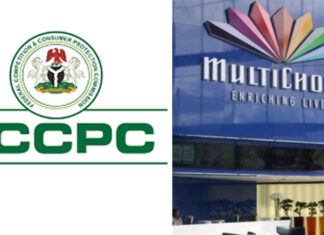By Kelechi Mgboji
Assistant Business Editor
The Central Bank of Nigeria (CBN) has liberalised foreign exchange (forex) trading while retaining a small official window for crucial transactions.
However, its Monetary Policy Committee (MPC) retained Monetary Policy Rate (MPR) at 12 per cent and Credit Reserve Requirement (CRR) at 22.5 per cent.
“The foreign exchange market framework, now ready, the MPC voted unanimously to adopt greater flexibility in exchange rate policy to restore the automatic adjustment properties of the exchange rate,” CBN Governor, Godwin Emefiele, disclosed in Abuja.
Mixed reactions
The flexibility came after President Muhammadu Buhari’s year-long insistence that his administration would not devalue the naira, analysts view the development as a policy U-turn to boost manufacturing and exports and stave off recession.
All current economic performance indices point to recession.
Some analysts believe the new policy is right, others say some of the decisions are strange and fear it may worsen naira to dollar exchange rate.
For instance, the inflation rate was 13.7 per cent in April and analysts would want rates hike to fight inflationary pressure.
Unegbu
But Okechukwu Unegbu, former president of the Chartered Institute of Bankers of Nigeria (CIBN), countered that rates increase would worsen economic challenges.
Unegbu said forex crisis is the major problem of the country at the moment, noting that the margin between the official and parallel market rates should be curtailed.
In his view, premium on forex at over 100 per cent when compared with the official rate is outrageous.
Unegbu said devaluation will not be favourable to Nigeria because of its mono-economy, the country is not producing anything that could be exported, and devaluation would not bring any advantage at the moment.
He urged the government to diversify the economy and strengthen the agricultural sector.
“We can devalue when we have agriculture produce we can export to other countries,” he added.
BDC operators
Other experts said the current devaluation will hurt the economy as the exchange rate of naira to dollar would rise to about N400 per dollar considering the scarcity of dollar following a sharp drop in forex earnings due to a slump in oil price.
“A flexible exchange rate regime? It is good but it’s coming at time when scarcity of dollars is exerting a lot of pressure on naira value.
“This good policy can hurt the local currency significantly, at least in the short term,” warned Matthew Eze, a bureau de change (BDC) operator.
He said until dollar supply improves, naira value will continue to weaken against a strong dollar, because the fate of the naira now hangs on the forces of demand and supply.
Eze explained that if naira weakens further by 30 per cent, its implication on the prices of goods and services will be quite telling on the standard of living.
Yet there are analysts who picked holes with the CBN retaining a small official window for interventions in critical transactions, saying it runs contrary to liberalisation policy, and wondering how it will work.
However, Harrison Owoh, another BDC operator, said the policy would impact positively on the economy and remove distortion, hoarding, and speculation in the currency market.
Owoh said allowing the forces of demand and supply to dictate the exchange rate is a universal policy that would discourage corruption in the forex market.
His words: “Nigeria operates a peculiar economy where risen commodity prices do not come down in spite of a better economic policy and environment.
“A flexible exchange rate will remove distortion, hoarding, and speculation of currency in the economy.
“It is one of the mechanisms used in the foreign exchange market to discourage round tripping. The policy has been successful in the advanced economies of the world.”
Renaissance Capital
On how the new policy will affect banks, analysts at Renaissance Capital said: “While revaluation gains and FX trading income improvements should materialise near term, asset quality risks and capital erosion are valid risks.
“GTBank’s expectation of a short term boost in Capital Adequacy Ratio (CAR) if the naira weakens cannot be seen as broad expectation for other banks, as Zenith for example thinks CAR could decline by about 2ppts if the exchange rate moves to NGN300/$1,” said the analysts in an email note.
Cowry Assets
“In our opinion,” analysts at Cowry Assets Management added, “the policy decisions will impact the economy on several fronts: We expect current inflationary pressure will continue unrestrained as budgetary disbursement commences.
“Also, interest rate is expected to continue to hover at current levels with an increased double digit outlook. Likely increase in liquidity mop up through Open Market Operation in response to expected increase in budgetary spending.
“Naira will remain under pressure, as market forces adjust the fixed CBN’s clearing rate to a more realistic parallel market rate.
“There will likely be foreign exchange inflows from domiciliary accounts estimated at USD20 billion as currency exchange risk minimises and capital market activities are expected to witness gradual recovery as foreign exchange risk diminishes, with the adoption of a more flexible exchange rate regime.”
Vetiva Capital
However, analysts at Vetiva Capital Management expect inflation to spike in the near term.
“It is clear that the MPC has chosen its battle carefully, deciding to loosen one of the key impediments to economic growth (the FX illiquidity).
“Following from this, we expect the inflation picture to worsen in the near term as a result of the emergence of a new exchange rate to consumer prices,” they said.











